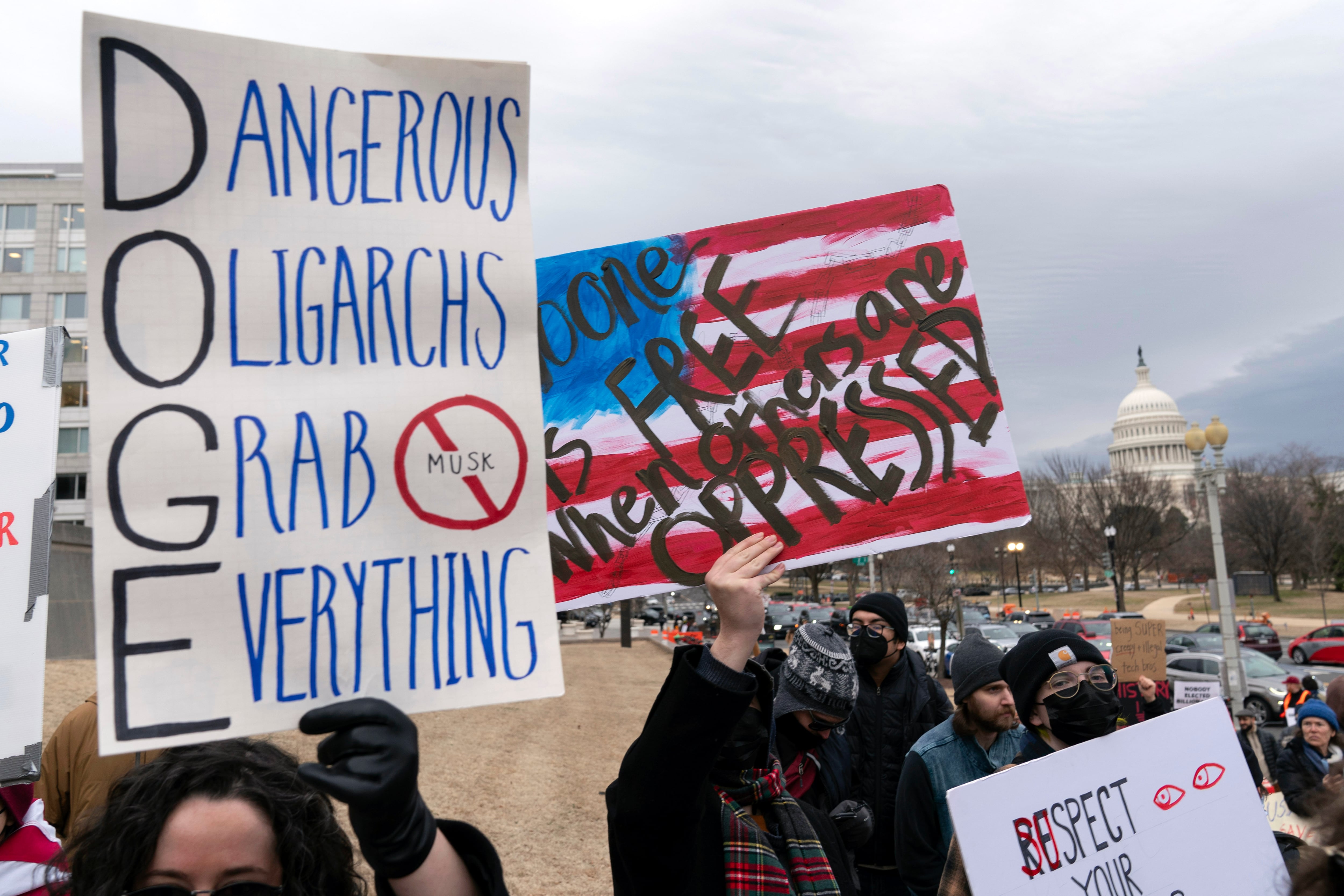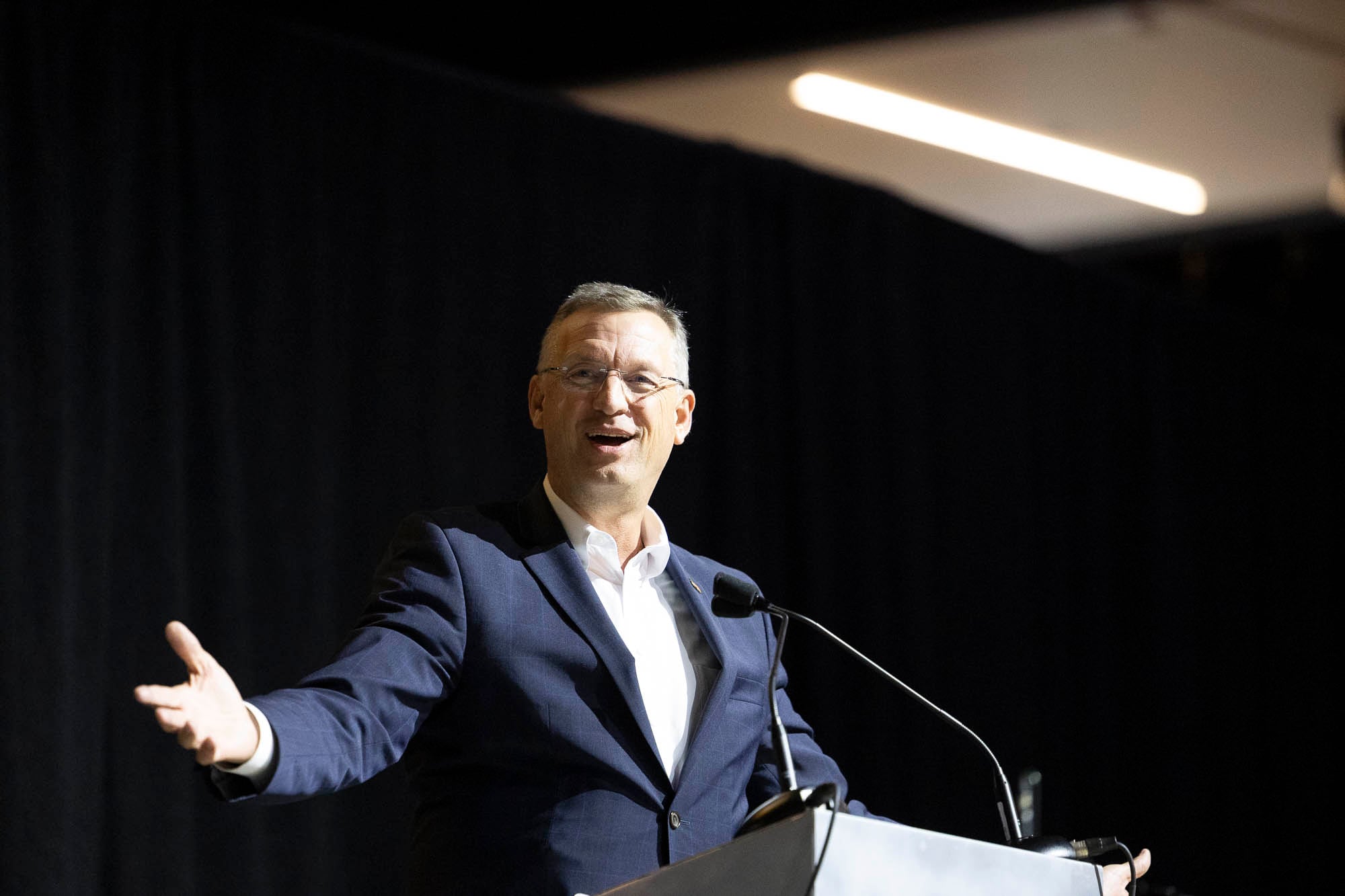Congressional Democrats are renewing concerns that Department of Government Efficiency employees may be accessing veterans’ sensitive personal information without proper authorization, but Veterans Affairs leaders continue to dismiss those accusations as political theater.
On Wednesday, House Veterans Affairs Committee ranking member Mark Takano, D-Calif., sent an angry letter demanding immediate answers from VA leadership on DOGE involvement at the department’s headquarters and information security throughout the agency.
“VA is required by [numerous laws] to protect veteran private health information,” the letter stated. “It is your job to ensure veteran privacy is being maintained at VA. Your inability to answer simple questions about who is accessing veterans’ private health records, and why, is an affront to the millions of veterans who use VA healthcare.”
The move came one day after a tense exchange during an appropriations hearing between VA Secretary Doug Collins and Sen. John Ossoff, D-Ga., on the topic. Both Ossoff and Takano have accused Collins of refusing to provide information on DOGE activities at VA for months.
RELATED

On Tuesday, when asked if personnel from the office have accessed patient medical records, Collins replied that “they are acting in their role as employees, and are authorized to do anything that they’re currently doing.”
Pressed further, Collins accused Ossoff of playing political games and trying to smear the department and the current presidential administration.
“I don’t know why there is such a lack of willingness to engage on this topic,” Ossoff replied.
Despite the departure of Elon Musk from his undefined leadership role in the Department of Government Efficiency last month, the agency continues to be a point of controversy for Congress and the executive branch.
DOGE employees in recent months have accessed numerous government computer systems and databases, in some cases making revisions or changes to the networks as part of their efforts to reform federal operations.
That type of activity has raised concerns among federal union representatives and outside advocates, especially when it comes to VA’s databases, which contain complete medical records and financial information for millions of individuals.
Earlier this year, VA leaders confirmed that DOGE employees were working inside VA but said publicly that they would be “focused on improving VA performance and efficiency and will not have access to veterans’ or VA beneficiaries’ data.”
Collins suggested that was still the case in his testimony Tuesday, although he did not explicitly say it. He sparred with several lawmakers over what he said were falsehoods and misleading statements designed to undermine reform efforts at the department, a common point of contention in the secretary’s interactions with congressional Democrats.
House Democrats this week unsuccessfully attempted to add an amendment to VA’s appropriations bill for the next fiscal year which would have mandated a watchdog report on DOGE employee’s access to VA information and their role in department personnel planning.
Takano’s letter asks for information on six DOGE employees believed to have accessed VA records, along with “any other individual” linked to the agency. He also requested assurances that outside software or artificial intelligence tools have not been installed on VA computer platforms, allowing outside monitoring of sensitive data.
Collins on Tuesday said he would take any congressional queries for the record and work on official department responses, a promise that Democrats have said he has not kept in the past and is unlikely to keep in the future.
The VA secretary’s appearance before the Senate Appropriations Committee was his fourth and likely last of the annual budget cycle, although Democrats on the panel suggested that they would like to hear from him directly again later this year. Collins did not commit to any future appearances.
Leo covers Congress, Veterans Affairs and the White House for Military Times. He has covered Washington, D.C. since 2004, focusing on military personnel and veterans policies. His work has earned numerous honors, including a 2009 Polk award, a 2010 National Headliner Award, the IAVA Leadership in Journalism award and the VFW News Media award.





